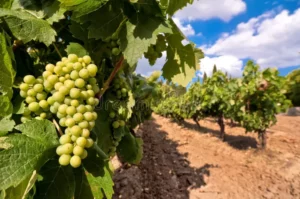You’re not the only one who has ever dreamed about owning a vineyard. Before you purchase a piece for your vineyard there are a few things that you should consider. Land for vineyards is a complex purchase. From finding the right location to understanding the legalities, it can be a difficult process. We’ll walk you through the legalities of buying land so you can make well-informed decisions.
The Different Types of Vineyards
It’s important to know the differences between vineyards if you’re considering purchasing land to build a vineyard. Not all vineyards have the same benefits and challenges.
Here are some of the most common types of vineyards.
1. Estate Vineyards
A vineyard that is owned by and operated exclusively by a winery, or wine producer, is called an estate vineyard. The winery is in complete control of the grape growing process from planting to harvest. Estate vineyards often produce higher-quality wine, as the winery is able to use only the best grapes.
2. Contract Vineyards
A contract vineyard is one that is owned by a person or group but grapes are sold on a contractual basis to wineries. Contract vineyards are a good choice for those who wish to enter the wine industry, but do not have the funds for land or winemaking equipment. The downside is that contract vineyards may have less control over their end product and be at the whims or the wineries with whom they work.
3. Hobby Vineyards
Hobby vineyards are usually small-scale operations that are run by individuals and families who are passionate wine lovers. These vineyards may not be profitable, but their owners enjoy the grape-growing and wine-making process as a hobby. Hobby vineyards can be a great option for those who are interested in the wine industry, but don’t want to commit to a full-time job.
4. Co-Op Vineyards
A co-op is a group that pools their resources in order to run a larger vineyard. Co-op vineyards are an excellent option for those who wish to enjoy the benefits of ownership, but without the high costs involved in owning and running a vineyard. Co-ops are a great way to access higher-quality resources and equipment that individual owners may not have.
It’s important to consider the pros and cons of each type of vineyard when deciding which one to purchase. The type of vineyard you choose will ultimately depend on your goals and budget as well as your level of expertise.
How to Choose a Vineyard
There are several factors to consider when choosing a vineyard. Here are a few tips to help make the right decision:
1. Location, location, location
The location of your vineyard is critical to the success of your business. Consider the climate, the soil quality and the terrain of the area you are interested in buying land. It is important to have the right conditions for growing grapes that will produce fine wine.
2. Consider the size of your property
When it comes down to vineyards, larger is not always better. You should consider the size of your property and whether it will be manageable for both you and your team. A smaller, well-maintained property is often preferable to a larger one that is poorly maintained.
3. Investigate the history of a property
It is important to research the history before purchasing a vineyard. Find out what crops have been grown in the past, and if there were any soil issues or other factors which could affect grape growth. You can also research the vineyard’s reputation and its wines in order to get a sense of its potential.
4. Check the water supply
Water is vital for grape growing, so you should make sure that the vineyard is well-equipped with a reliable supply. Check the quantity and quality of water on the property, as well as the irrigation system.
5. Cost-benefit analysis
The cost of a winery can vary widely depending on factors such as location, size and other factors. Before making a decision, consider your budget and the potential return on investment.
These factors will help you choose a vineyard which is suitable for your business and will set you up to succeed in the world winemaking.


Leave a Reply